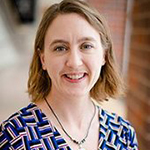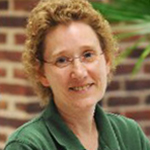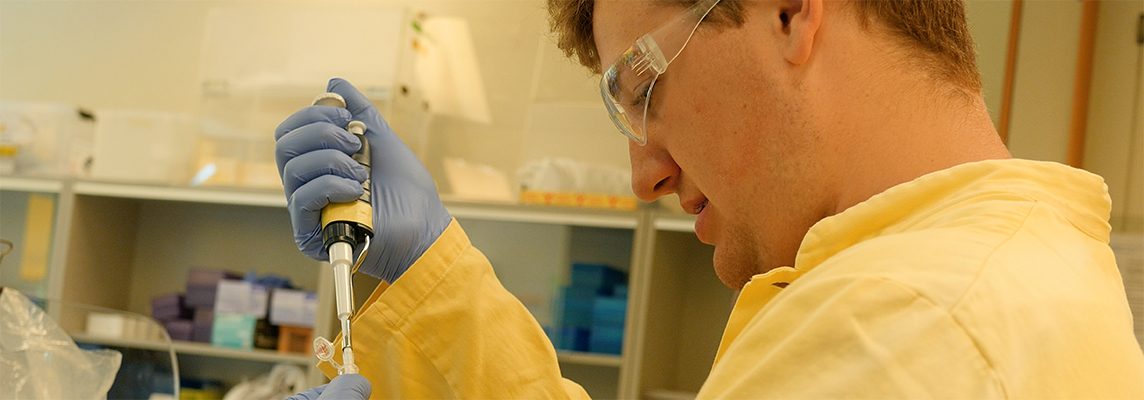 Dr. Caryn L. Heldt, Associate Professor in Chemical Engineering and the James and Lorna Mack Chair in Bioengineering. Dr. Heldt’s research area is in the removal, purification, detection and inactivation of pathogens. This has led her laboratory to develop methods for vaccine purification, virus removal and, most recently, to understand the interaction of proteins and other biomolecules with graphene paper composites for protein sensing applications. Dr. Heldt will lead the U.S. orientation and provide to support to students as needed in Denmark.
Dr. Caryn L. Heldt, Associate Professor in Chemical Engineering and the James and Lorna Mack Chair in Bioengineering. Dr. Heldt’s research area is in the removal, purification, detection and inactivation of pathogens. This has led her laboratory to develop methods for vaccine purification, virus removal and, most recently, to understand the interaction of proteins and other biomolecules with graphene paper composites for protein sensing applications. Dr. Heldt will lead the U.S. orientation and provide to support to students as needed in Denmark.
 Dr. Julia A. King, Professor in Chemical Engineering and the Lorna and James Mack Chair in Continuous Manufacturing. Dr. Julia King (co-PI) worked in industry at Exxon USA and DuPont/Conoco for 10 years. For the past 19 years at Michigan Tech, Dr. King has conducted research in the area of carbon fillers and composite materials. Much of this work has focused on developing and modeling thermally and electrically conductive composites. Dr. King will lead the U.S. orientation and provide to support to students as needed in Denmark.
Dr. Julia A. King, Professor in Chemical Engineering and the Lorna and James Mack Chair in Continuous Manufacturing. Dr. Julia King (co-PI) worked in industry at Exxon USA and DuPont/Conoco for 10 years. For the past 19 years at Michigan Tech, Dr. King has conducted research in the area of carbon fillers and composite materials. Much of this work has focused on developing and modeling thermally and electrically conductive composites. Dr. King will lead the U.S. orientation and provide to support to students as needed in Denmark.
 Dr. Birgitta R. Knudsen, Associate Professor in the Department of Molecular Biology and Genetics, will supervise the students from the molecular biology perspective. Dr. Knudsen studies topoisomerase and has pioneered using the activity of topoisomerases as a biomarker, as well as the topoisomerases-based antitumor chemotherapies. She also studies how cancer stem cells develop into cancer, as well as their therapeutic responses to antitumor drugs.
Dr. Birgitta R. Knudsen, Associate Professor in the Department of Molecular Biology and Genetics, will supervise the students from the molecular biology perspective. Dr. Knudsen studies topoisomerase and has pioneered using the activity of topoisomerases as a biomarker, as well as the topoisomerases-based antitumor chemotherapies. She also studies how cancer stem cells develop into cancer, as well as their therapeutic responses to antitumor drugs.
 Dr. Lotte Bjergbaek, Associate Professor in the Department of Molecular Biology and Genetics, investigates different aspects of DNA repair using S. cerevisiae (budding yeast) as a model system. The lab has developed two cellular systems, where repair can be studied at a specific genomic locus. This allows the use of molecular techniques, which is not possible when studying the cellular responses to genome-wide damage.
Dr. Lotte Bjergbaek, Associate Professor in the Department of Molecular Biology and Genetics, investigates different aspects of DNA repair using S. cerevisiae (budding yeast) as a model system. The lab has developed two cellular systems, where repair can be studied at a specific genomic locus. This allows the use of molecular techniques, which is not possible when studying the cellular responses to genome-wide damage.
 Dr. Anni H. Andersen, Associate Professor in the Department of Molecular Biology and Genetics, studies different DNA interacting enzymes including topoisomerases, helicases and repair enzymes and their importance in cancer, cancer chemotherapy and premature aging. She also studies the use of DNA as a sensor for measurements of environmental conditions including temperature, pH, salt, etc.
Dr. Anni H. Andersen, Associate Professor in the Department of Molecular Biology and Genetics, studies different DNA interacting enzymes including topoisomerases, helicases and repair enzymes and their importance in cancer, cancer chemotherapy and premature aging. She also studies the use of DNA as a sensor for measurements of environmental conditions including temperature, pH, salt, etc.
